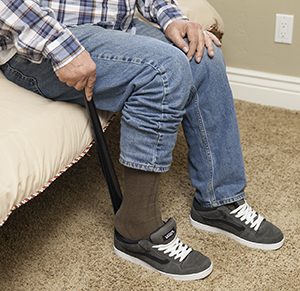After a stroke, people can regain a sense of power by helping take care of themselves. Many can learn ways to manage a lack of bowel and bladder control. And using impaired arms and legs to bathe and dress helps regain muscle strength. In fact, daily use of affected hands often helps bring back function. As the function improves, encourage the person as much as possible to use the affected side as part of an effective recovery.
Bladder and bowel problems
A stroke may affect your loved one’s bladder and bowel control. The problem may seem worse if they can’t walk to the bathroom alone or ask for help. Nurses can help you both find a way to manage the problem. They may suggest the following:
-
Take the person to the toilet at set times. You might try every 2 hours to 3 hours.
-
Provide a bedside commode for use at night.
-
Use absorbent briefs.
-
Refrain from drinking fluids late in the evening.
Bathing and dressing
With the help of occupational therapists, people who have had a stroke can learn new ways to bathe and dress. Your loved one may be taught to:
-
Test water temperature with a hand or foot that was not affected by the stroke.
-
Use grab bars, a shower seat, a handheld shower, and a long-handled brush.
-
Dress while sitting, starting with the affected side or limb.
-
Wear shirts with snaps or Velcro closures. Use zippers with loops attached to them. Sweatpants or skirts with elastic waistbands may also be advised.


